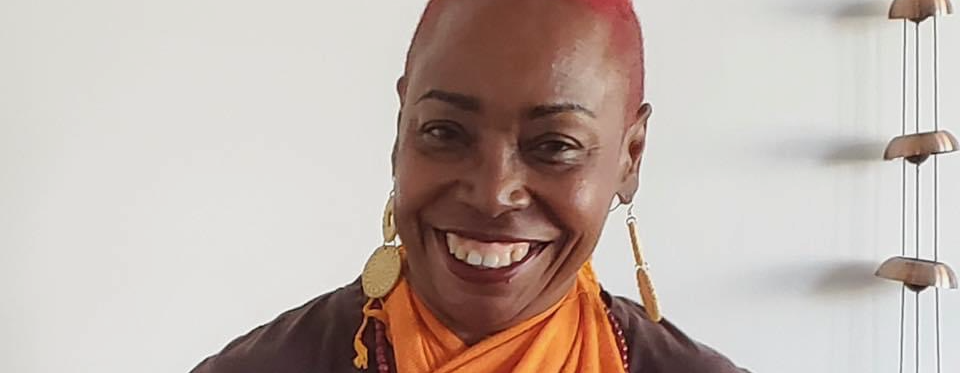Like a child grabbing for a treat, white people and white institutions reach out to black people they barely know or have forgotten about over time. I am a crone, and was around the last time black people were feared and thus brought into white awareness. As a crone, a Buddhist, and a practitioner of mindfulness, I choose to understand this as reaching out rather than reaching in.
Reaching in is the first obligation of practice. It is by this practice that I have found space and freedom. I have found a space — not afforded to me as a black, female body in this world — to discover my body, my breath, and for the purpose of this writing, the contours of my life. I have had an opportunity to really see the ways in which white supremacy has shaped my vision, my possibilities, even how I might choose to love.
It is through this practice that I have come to understand white people to be human. This did not come from a home that trained me “to be kind to everybody” — a mantra that was rooted more in fear, and whose real message was to be watchful because you never know when that white person who seemed so nice would turn and cause you to lose your job or your life. I have learned about white humanity from sitting in spaces where I am one of few people of color, and often the only person who lives at the intersection of blackness, age, working-class, and queer. Over the years, I have heard the broken-heartedness of the lives of white people, even as that heartbreak sits atop a skyscraper of privilege granted by the white supremacy system which has encased my life and the lives of all black people.
It is also through practice that I have seen the deep chasm between our lives. Coming together to share in common spaces, and then separating as they go to Johannesburg and I return to Soweto. We live in different geographic and spiritual places. Our histories are so divergent; even those who have studied and even worked with black people have only a prophylactic awareness. I have chosen to share my heart and my life in these circles over many years and have often struggled with the idea that what I share is seen as performative. That my life is an extension of “The Wire,” to be consumed for how different it is from “real life.”
On the election of Donald Trump, I was not amazed, but saddened by the surprise and shock of many of these practitioners. I was frankly angry at their new awareness of being unsafe. I have been unsafe since the day I was born. I was, and sometimes still am, so angry at this new awareness. Those who know me are aware that the central place of beginning and ending for me is the Buddha’s understanding of how the delusion of separation is a core reason for the suffering in this world. It is that delusion that allowed for the genocide of indigenous people in this country. It is that delusion that allowed for the enslavement, torture, rape, and murder of my ancestors. It is that delusion that has allowed for the continued effort to destroy the lives of Black people and all People of Color through a system that holds the people that benefit from it blameless.
It is from that understanding that I choose to continue to open my heart to white people, even as I keep using the historical eyes of wisdom through which I view them. I want to ask white people to reach in to discover the contours of their lives as white people. To question why it is that they have no black friends, colleagues, etc… I ask that they look at the power relationships that almost certainly inform their relationships with black people. I want white practitioners to look at the way “mindful communication” serves to protect their innocence. Too many white people have Black Lives Matter signs in their yards, but they fear my son and have called the police if he and a friend were walking too slowly past their newly colonized streets.
I am curious about my own willingness and call to be connected with white people. Is it some sad holdover from slavery? Am I that “house nigger” that is so reviled by my community? Am I using Buddhism to “take care of Massa?” My younger self would certainly have this critique. She would say, I am not so open-hearted as I am bound by a “love” that has been defined by white people, that has carried over into this practice. A love that cushions white people from their history and their pain. I hear her and understand, but this journey has allowed me to reconnect, not with a white construct that demands forgiveness, but with the ancient understanding of my ancestors who proclaimed, “I am because we are.” I am connecting with the sometimes unbearable and unending call to that truth that we are all one, and it is through our connection that we can and must all finally be liberated.
I ask you to examine your life and privilege without shame, but with a deep curiosity — that I sat with you for years and you felt no need to know me. And you can’t call me now because you don’t have my phone number.
Ayesha Ali has been engaged in mindfulness practice and work for over twenty years. She is a poet, writer and teacher whose work focuses on moving past the internal and external barriers that separate black women and children from their lineage of competence, beauty and power. She is one of the founders of the Heart Refuge Mindfulness Community.



